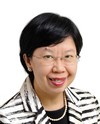This fascinating and insightful volume introduces readers to food as a window to the social and cultural history and geography of Singapore. It demonstrates how the food we consume, the ways in which we acquire and prepare it, the company we keep as we cook and eat, and our preferences and practices are all revealing of a larger economic, social, cultural and political world, both historically and in contemporary times. Readers will be captivated by chapters that deal with the intersections of food and ethnicity, gender and class, food hybridity, innovations and creativity, heritage and change, globalization and localization, and more. This is a must-read for anyone interested in Singapore culture and society.
Sample Chapter(s)
Introduction: Theorising Contemporary Foodscapes: Conceptual and Empirical Insights from Singapore (139 KB)
Chapter 1: Taking the Street Out of Street Food (634 KB)
Contents:
- Theorising Contemporary Foodscapes: Conceptual and Empirical Insights from Singapore (Lily Kong and Vineeta Sinha)
- Taking the Street Out of Street Food (Chua Beng Huat)
- Singapore's "Snackscapes" (Adeline Tay)
- Tasting Memories, Cooking Heritage: A Sensuous Invitation to Remember (Kelvin E Y Low)
- Placing Pig Farming in Post-Independence Singapore: Community, Development and Landscapes of Rurality (Harvey Neo)
- The Kopitiam in Singapore: An Evolving Story about Cultural Diversity and Cultural Politics (Lai Ah Eng)
- The Taste of Retro: Nostalgia, Sensory Landscapes and Cosmopolitanism in Singapore (Jean Duruz)
- Mapping Singapore's Culinary Landscape: Is Anyone Cooking? (Vineeta Sinha)
- Bloggers, Critics and Photographers in the Mediation of Food Consumption (Tan Xiang Ru, Amy)
- From Sushi in Singapore to Laksa in London: Globalising Foodways and the Production of Economy and Identity (Lily Kong)
Readership: General public and a must-read for anyone interested in Singapore culture and society.
"This book is a multidisciplinary masterpiece and the intensely researched examination that the foodways and foodscapes of Singapore deserves. Comprehensive in its examination of changing food practices, this volume powerfully connects consumption, production, built environments, home kitchens, hawker centres, and the sensory experience of food. It is a must read for anyone interested in how a multidisciplinary analysis can enliven the study of food in diverse cities."
Daniel Bender
Canada Research Chair in Global Culture and Director
Culinaria Research Centre
University of Toronto
"In the many reflections for SG50, nothing comes closer to Singapore's identity than the city-state's diversified, multi-ethnic and delectable foods. The 10 chapters in this book are a much welcomed multidisciplinary academic intervention of the quintessential Singaporean passion of eating and snacking. This book savours all its foodscapes, foodways and cuisines through its street foods, hawker centres, kopitiams and restaurants. Singapore's food obsession best undergirds Joseph Nye's 'soft power', an expression of 'Eurasian' cultural fusion, Asian gastronomical delights and cosmopolitan consumption which variously defines Singapore's national identity, its innovative expressions, its tourist beaconing, its recollection of 'sensory heritage', its transcultural involvement, and its global-local statement. Sample Singapore's mouth-watering creativity through its social, cultural, political, historical, and economic taste buds. This is definitely a digestible book worth consuming."
Victor R Savage
National University of Singapore
"Journey through kampungs and kopitiams and find out why food is so important in Singapore culture! An essential read for anyone seeking to understand Singapore food!"
Leslie Tay
Author, blogger and self-proclaimed gastro-geek
http://ieatishootipost.sg
"Food, Foodways and Foodscapes is an extraordinary and a rare book that is simultaneously richly descriptive, deeply evocative, and sharply analytical. It provides a welcome and much needed shift in the locus of discussion from the over-written spaces of restaurants and TVs in North Atlantic nations, to the streets, the home, and the web, in a city-state in southeast Asia, which is precisely what makes it theoretically fecund."
Krishnendu Ray
New York University &
President, Association for the Study of Food & Society
"This is one of the most accessible and comprehensive book to chart Singapore's food history … It is an excellent starting point for anyone keen to understand the ways in which Singaporeans think about and enjoy, food."
The Sunday Times, Singapore

Vineeta Sinha is Professor at the Department of Sociology at the National University of Singapore. She is concurrently the Head, Department of Sociology and the South Asian Studies Programme at NUS. Her books include: A New God in the Diaspora? Muneeswaran Worship in Contemporary Singapore (2005), Religion and Commodification: Merchandising Diasporic Hinduism (2010) and Religion State Encounters in Hindu Domains: From the Straits Settlements to Singapore (2011).

Lily Kong is Lee Kong Chian Professor of Social Sciences at the Singapore Management University where she is also Provost. Her recent books include Arts, Culture and the Making of Global Cities: Creating New Urban Landscapes in Asia (2015); Religion and Place: Landscape, Politics and Piety (2012); and Conserving the Past, Creating the Future: Urban Heritage in Singapore (2011).


























